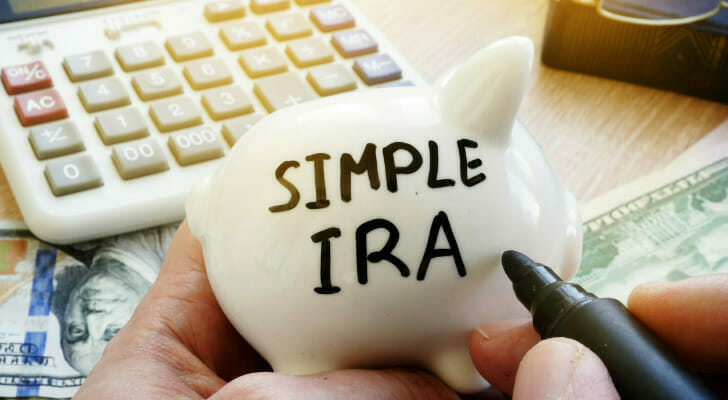SIMPLE IRA vs. Traditional IRA: What’s the Difference?
Jan 03, 2024 By Susan Kelly
Introduction
One can use a Roth IRA or a Simplified Employee Pension to benefit from tax advantages when investing for retirement (SEP). While contributions to a traditional IRA can be made by anyone with earned income (within certain income restrictions), contributions to a SIMPLE IRA must be made through your employer.
Discover the differences between a SIMPLE IRA vs. Traditional IRA and how you can use either. You'll learn about each account type in this course, who is allowed to contribute, and how much you may save through various plans. To decide which option is best for your retirement planning requirements, learn more about Roth IRAs and SIMPLE IRAs.
SIMPLE IRA
The Savings Incentive Match Plan for Employees (SIMPLE IRA) benefits the business and its employees. Businesses with fewer than 100 employees and an annual salary of at least $5,000 are eligible for this retirement plan.
Like the standard IRA, the SIMPLE IRA permits tax-deferred contributions, eventually enabling the account to grow through compound interest. Withdrawals made after you reach retirement age are taxed as income. The SIMPLE IRA of an employee may receive contributions from both the employer and the employee. Employers are obligated to contribute a minimum of 2% of employees' salaries, whether or not employees contribute (up to 3% of income). Before the employer contributes, the employee must first make their contribution.
SIMPLE IRA Benefits

Employers can easily set everything up and manage it because most banks offer online enrollment. This sort of retirement plan has meagre management costs for employers compared to other retirement plan types. Taxes are not applied to employee contributions until they are withdrawn from the plan. Employer donations are deductible for tax purposes. For sole proprietors, the salary and the matching contributions are tax deductible. Over the 50s currently employed are eligible to make a "catch-up" payment. Businesses do not need to report anything because IRA plan providers already send tax data to the IRS. The plan specifies the account's investment alternatives, which are then agreed upon by the company and employee. International mutual funds, domestic funds geared toward growth or income, and alternative investments are a few options.
SIMPLE IRA Drawbacks
All firms must adhere to strict rules established by the Internal Revenue Service. Comparatively speaking, the 401(k) has a larger annual contribution cap of $20,500 than other employer-sponsored retirement plans. (Use our IRA calculator to figure out how much money you can contribute to different IRAs. Account holders must pay income taxes and a 10% penalty on any withdrawals made from their accounts before turning 59 and 12. Roth contributions, which would enable account holders to make contributions after taxes have been deducted, are not supported by SIMPLE IRAs, in contrast to standard IRAs.
Traditional IRA
A person can start a typical IRA to put money aside for retirement. A regular IRA does not involve the employer in the retirement savings strategy. To be eligible for an Individual Retirement Account (IRA), a person must not be older than 70 and a half at the end of the year and must have made money in the previous year (IRA).
Traditional IRA Pros
People who are over 50 can contribute "catch-up" amounts. One can choose how their savings will be invested based on the possibilities offered by the plan. International mutual funds, domestic funds geared toward growth or income, and alternative investments are a few options. Explained that contributions are not taxed until the funds are withdrawn.
Traditional IRA Cons
The $6,000 annual maximum is significantly less than what is allowed for 401(k)s and SIMPLE IRAs.

What's the Difference Between a Traditional IRA and a SIMPLE IRA?
Individual retirement arrangements (IRAs), also referred to as "retirement accounts" or "IRAs," include both standard and simplified employee pension (SEP) IRAs. Both have considerable tax advantages when investing for retirement. Both are intended to provide financial security in an old life. Thus, fines may apply if money is withdrawn before the designated time. You can open a Traditional IRA at any stockbroker. Since contributions are always taxed in the year they are made, you cannot claim a tax deduction for them. But if you follow the regulations, your retirement funds will increase tax-free and fully belong to you.
Conclusion
It is advisable to contribute funds to an Individual Future Account to plan your retirement (IRA) appropriately. Your situation will determine whether you should choose a regular IRA or a simplified employee pension (SIMPLE) IRA. If you require assistance choosing the best choice for your requirements, speak with a financial expert. A seasoned financial advisor is an excellent resource if you need help deciding.

Sep 26, 2024 Aldrich Acheson

Feb 07, 2024 Triston Martin

Dec 03, 2024 Pamela Andrew

Dec 04, 2024 Elva Flynn

Nov 12, 2024 Sid Leonard

Jan 07, 2024 Susan Kelly